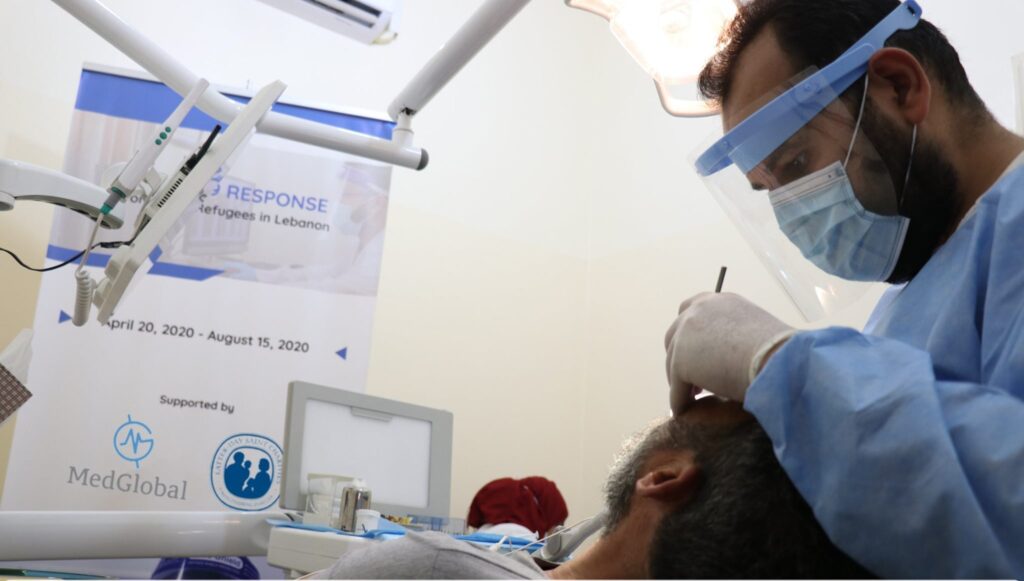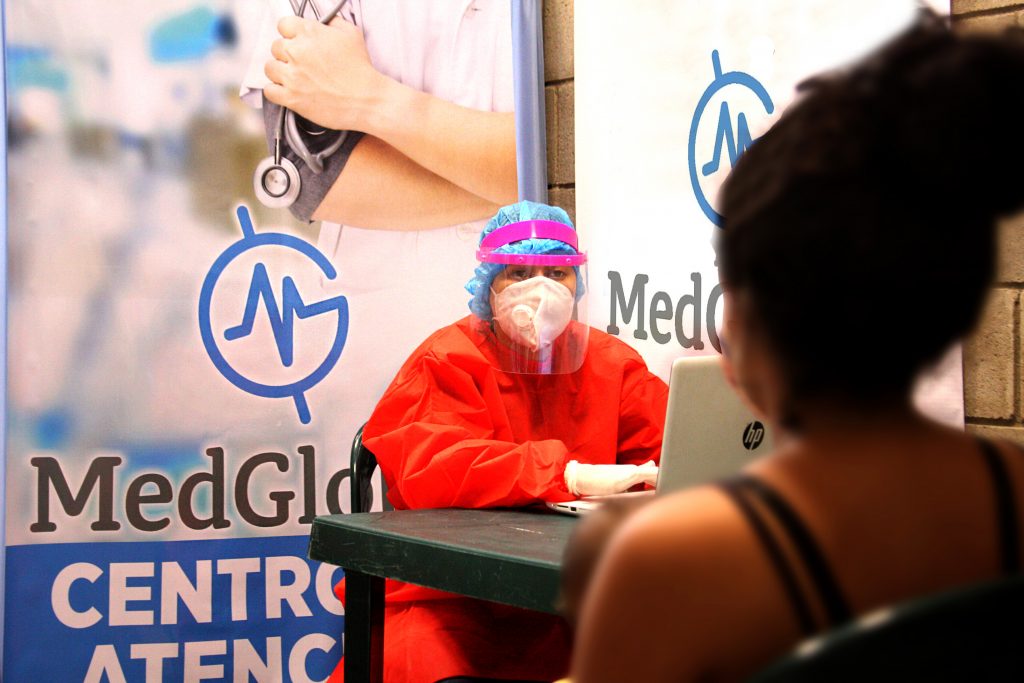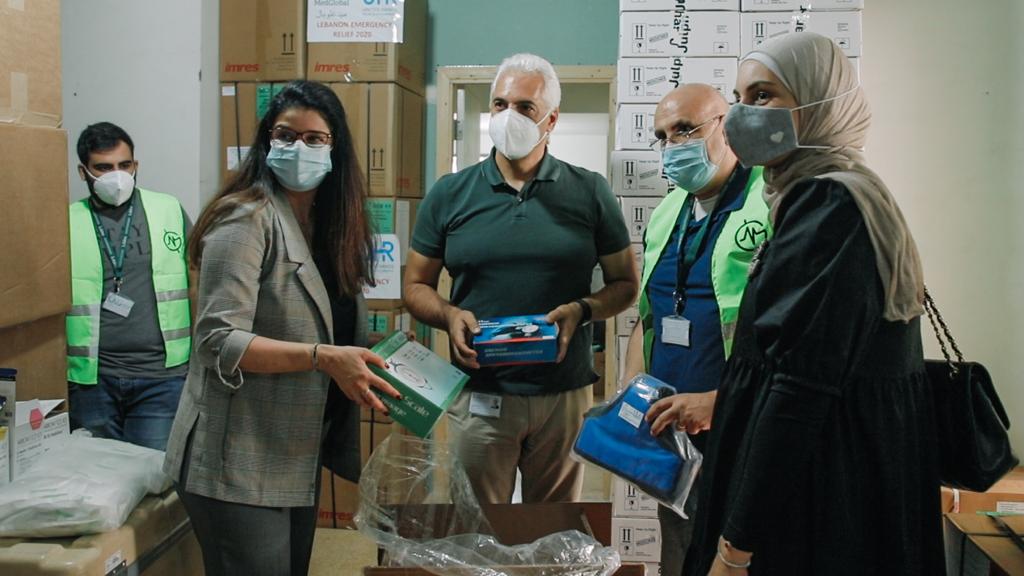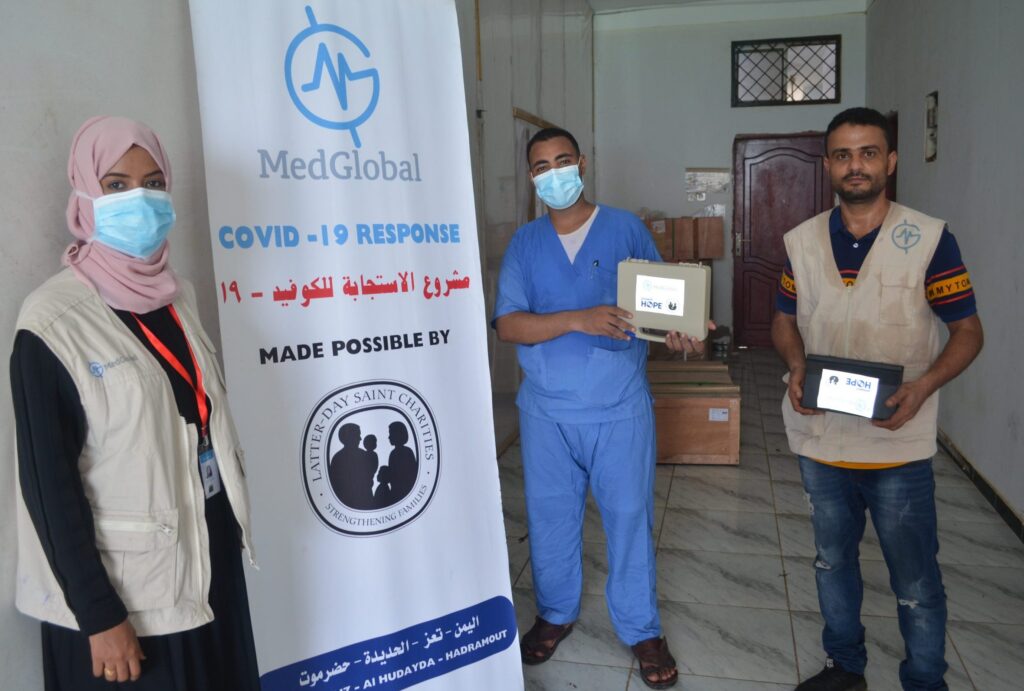Updates & Press
Featured | October 19, 2020
Field Operations Update for October 2020
Author | MedGlobalComms

Each month, MedGlobal publishes a monthly Field Operation Update, highlighting our humanitarian and health programs around the world. MedGlobal supports healthcare in Bangladesh, Colombia, Ecuador, Gaza, Greece, Lebanon, Sudan, Syria, and Yemen, and has been contributing to the COVID-19 response in the United States. These monthly blog posts provide a snapshot of some of our most notable program updates from the past month. For more frequent updates, make sure to follow us on Facebook, Instagram, and Twitter.
Colombia

This past month, MedGlobal extended support for two nurses working at a shelter at Tienditas Bridge on the border of Venezuela and Colombia. These nurses are providing free medical care to Venezuelans who are stuck at the border, waiting to return to Venezuela due to deteriorating conditions in Colombia. Particularly since COVID-19 reached the country, the Colombian health system has been overwhelmed and many of the 1.8 million displaced Venezuelans in the country do not have access to health services. The lockdowns and economic downturn caused by COVID-19 have also made life for migrants in Colombia increasingly difficult. Thousands of Venezuelans are now attempting to return home, but prospects for returnees, especially in terms of access to healthcare, remain grim.
Gaza
The spike of COVID-19 cases in Gaza has continued into October. MedGlobal, in partnership with Rahma Worldwide, provided 6,000 COVID-19 test kits and a shipment of medications for chronic diseases to hospitals in Gaza. This aid is crucial for supporting the fragile and under-resourced health sector that suffers from chronic shortages of medications and supplies. Testing capacity has also remained an urgent issue in Gaza, where hospitals rely on donations of testing kits from humanitarian organizations and UN agencies to meet needs. Gaza is home to two million Palestinians, nearly 80% of whom rely on humanitarian assistance and live in overcrowded areas with poor living conditions.
Lebanon

Following the devastating explosion of Beirut’s port, MedGlobal launched an emergency response in Beirut to provide support to overwhelmed health facilities facing increased levels of medical need. MedGlobal partnered with United Hands Relief and Development to provide essential medical equipment and supplies to the LAU Medical Center-Rizk Hospital in Beirut. The medical container included more than 55,000 medications and 20,000 pieces of equipment and supplies, including critically-need PPE to protect health staff during the pandemic. This support will help serve nearly 10,000 people in Lebanon.
Sudan
MedGlobal and the Sudanese American Physician Association (SAPA) are moving forward together to build an oxygen generator and oxygen filling station at Nyala Teaching Hospital in South Darfur. MedGlobal and SAPA will also provide 20 oxygen cylinders. The project will be managed by the South Darfur Ministry of Health which will provide long-term maintenance for the generator. This support will play a role in building the hospital’s capacity to treat patients with extreme COVID-19 symptoms or other respiratory illnesses in an extremely underserved community. MedGlobal has previously supported 8 hospitals throughout Sudan with PPE and medical equipment, but this is the first project MedGlobal has launched in the Darfur region.
Yemen

MedGlobal distributed PPE, medical supplies, and equipment to Al Mokha Isolation Center in Taiz governorate. This support follows MedGlobal’s work to establish the isolation unit which provides vital healthcare to one of the area’s most vulnerable populations. Prior to MedGlobal’s involvement, there were no functioning hospitals screening for COVID-19 in Al Mokha. All suspected and confirmed cases were referred to Aden or Taiz City, a journey of 4 to 5 hours, forcing many people with COVID-19 to remain at home as their health deteriorated. The recent distribution to Al Mokha Isolation Center included 24 beds, 19 oxygen cylinders, diagnostic equipment, thousands of items of PPE, and other requested medical supplies. In Yemen, only half of all medical facilities are fully functioning, making health support more critical than ever.


